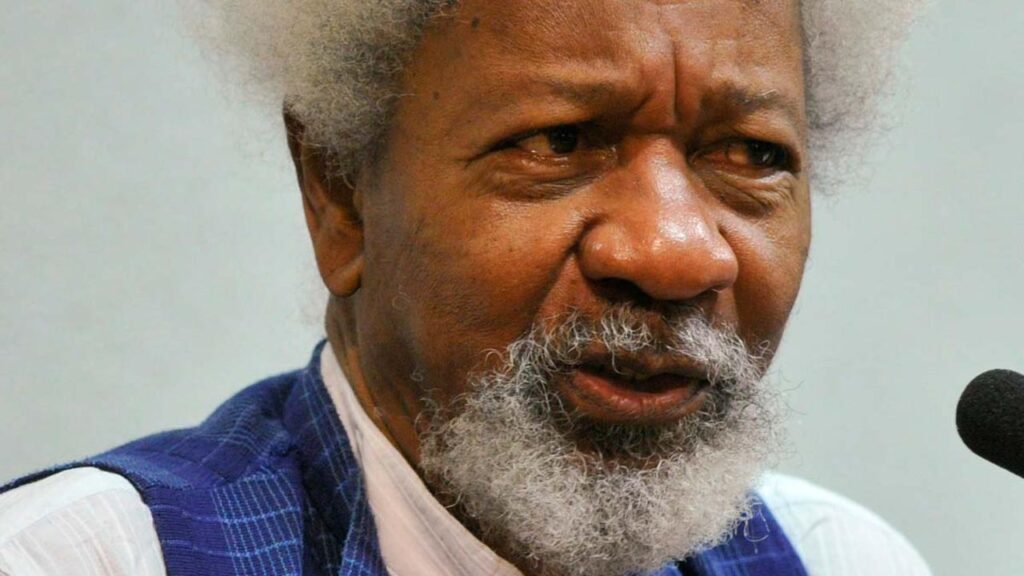
The Chartered Institute of Transport Administrators of Nigeria (CIOTA), has advised the federal government and organised labour not to allow disagreement over the removal of fuel subsidy to lead into another round of industrial action, so that the economy would not suffer.
The institute urged the federal government to pick credible individuals to negotiate on its behalf with the unions and approach the negotiation table with sincerity.
This was the consensus of members of the institute and other stakeholders in the transport sector during a virtual national roundtable discussion on Sunday titled “Fuel subsidy removal conundrum: National consensus on removal, but cacophony on how to achieve it.”
The participants also advised the government to earn the trust of Nigerians by taking immediate steps and strategies on how the funds freed from subsidy would be used to improve living standard by using it on health, education, power and other social services.
The President, CIOTA, Prince Segun Obayendo, said it was unfortunate that the subsidy that was introduced to alleviate the suffering of the people had become a trap and a major source of their suffering.
On the price of fuel in neighbouring countries, Obayendo asked,” If we remove subsidy, can we also determine the price of the product in other nations around us? This is because the price in those places has gone up and won’t that make smuggling of the product more attractive to people?
In his paper, the Lead Speaker, Prof. Samuel Odewumi of the School of Logistics, Lagos State University (LASU), allayed Obayendo’s fear, stating that as long as Nigeria is able to recover the cost of production locally, there would be no problem.
Odewumi observed that Nigeria would only become the hub of oil refining and production in the subregion.
On the strike action being considered by the Nigeria Labour Congress (NLC), the don noted that it must be avoided at all cost, as the consequences for the economy would be devastating.
“My plea is that labour should overlook the hasty proclamation of the subsidy removal. Also, my plea to the government is that credible people, those who have knowledge in the industry, should form the government’s team for the negotiation. The negotiation should not stop and it should continue until something reasonable is agreed to by all parties.
“The government team should also not behave as if it is the superior side on the negotiation table. What the government team did during the strike by the Academic Staff Union of Universities (ASUU), should not be repeated. It is not a master-servant situation. Moreover, the NNPC does not seem to be the appropriate body to speak for the government on this matter,” he said.
Former National President of the Trade Union Congress (TUC), Peter Esele, said trust deficit on the part of the government should be bridged, as most Nigerians seem to agree that the subsidy should go, but are wary of how government would spend the funds that would now accrue to it from the removal.
“Those saying that there would be a monopoly as Dangote Refinery seems to be the only hope for local refining of the product should stay calm. The Port Harcourt Refinery is expected to come up later in the year, while BUA Refinery is slated for next year or early 2025,” he stated.
Other contributors such as Dr Kayode Opeifa, Prof. Innocent Ogwude, Dr Mercy Ilori, Dr Boboye Oyeyemi and others agreed that the subsidy should be removed and that the disagreement on how to achieve that be resolved in the interest of the citizens.
Fuel subsidy removal: Group advises FG on measures to calm nerve, placate labour
The Chartered Institute of Transport Administrators of Nigeria (CIOTA), has advised the federal government and organised labour not to allow disagreement over the removal of fuel subsidy to lead into another round of industrial action, so that the economy would not suffer.
The institute urged the federal government to pick credible individuals to negotiate on its behalf with the unions and approach the negotiation table with sincerity.
This was the consensus of members of the institute and other stakeholders in the transport sector during a virtual national roundtable discussion on Sunday titled “Fuel subsidy removal conundrum: National consensus on removal, but cacophony on how to achieve it.”
The participants also advised the government to earn the trust of Nigerians by taking immediate steps and strategies on how the funds freed from subsidy would be used to improve living standard by using it on health, education, power and other social services.
The President, CIOTA, Prince Segun Obayendo, said it was unfortunate that the subsidy that was introduced to alleviate the suffering of the people had become a trap and a major source of their suffering.
On the price of fuel in neighbouring countries, Obayendo asked,” If we remove subsidy, can we also determine the price of the product in other nations around us? This is because the price in those places has gone up and won’t that make smuggling of the product more attractive to people?
In his paper, the Lead Speaker, Prof. Samuel Odewumi of the School of Logistics, Lagos State University (LASU), allayed Obayendo’s fear, stating that as long as Nigeria is able to recover the cost of production locally, there would be no problem.
Odewumi observed that Nigeria would only become the hub of oil refining and production in the subregion.
On the strike action being considered by the Nigeria Labour Congress (NLC), the don noted that it must be avoided at all cost, as the consequences for the economy would be devastating.
“My plea is that labour should overlook the hasty proclamation of the subsidy removal. Also, my plea to the government is that credible people, those who have knowledge in the industry, should form the government’s team for the negotiation. The negotiation should not stop and it should continue until something reasonable is agreed to by all parties.
“The government team should also not behave as if it is the superior side on the negotiation table. What the government team did during the strike by the Academic Staff Union of Universities (ASUU), should not be repeated. It is not a master-servant situation. Moreover, the NNPC does not seem to be the appropriate body to speak for the government on this matter,” he said.
Former National President of the Trade Union Congress (TUC), Peter Esele, said trust deficit on the part of the government should be bridged, as most Nigerians seem to agree that the subsidy should go, but are wary of how government would spend the funds that would now accrue to it from the removal.
“Those saying that there would be a monopoly as Dangote Refinery seems to be the only hope for local refining of the product should stay calm. The Port Harcourt Refinery is expected to come up later in the year, while BUA Refinery is slated for next year or early 2025,” he stated.
Other contributors such as Dr Kayode Opeifa, Prof. Innocent Ogwude, Dr Mercy Ilori, Dr Boboye Oyeyemi and others agreed that the subsidy should be removed and that the disagreement on how to achieve that be resolved in the
interest of the citizens.













